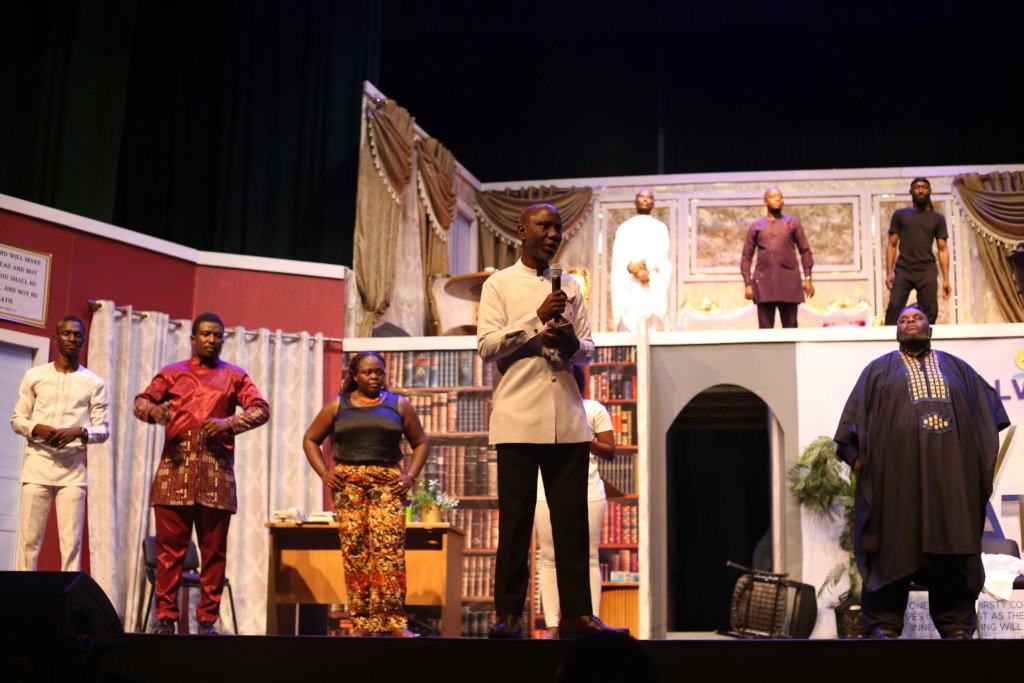For months, I had been trying to get my colleagues at work to experience Ghanaian playwright Uncle Ebo White’s original plays, which are shown every quarter of the year. I failed up until Thursday, July 4, when I got two of my colleagues to have a taste of the “be the difference” tribe after securing a free ride.
Uncle Ebo’s most recent play, “Takeover,” was having its final technical dress rehearsal, which was opened to friends and families of members of Roverman Productions. In my mind, we felt like VIPs.
At the end of the show, I was greeted with, “So this is what I have been missing. No wonder you have been asking us to come and watch Uncle Ebo.” A colleague who loves music could not stop showering praises, expressing her excitement after witnessing a performance reminiscent of Canada’s Celine Dion through a complex character.
A similar sentiment was echoed by another set of two colleagues who, together with me, trooped into the National Theatre on Saturday, July 6. You can imagine the joy I felt after confirming for the umpteenth time that I had good taste, and so did the few people in my circle.
Call me a “Roverman” because I love stage plays, especially those by Uncle Ebo White. It is no fault of mine, to be honest with you. Integrating drama, music, and dance—and doing it so beautifully—of course, you will get my attention.
I was seated with the air conditioner hushing its breeze over me, ready to note what went wrong during the technical dress rehearsal that might recur during the actual performance night.
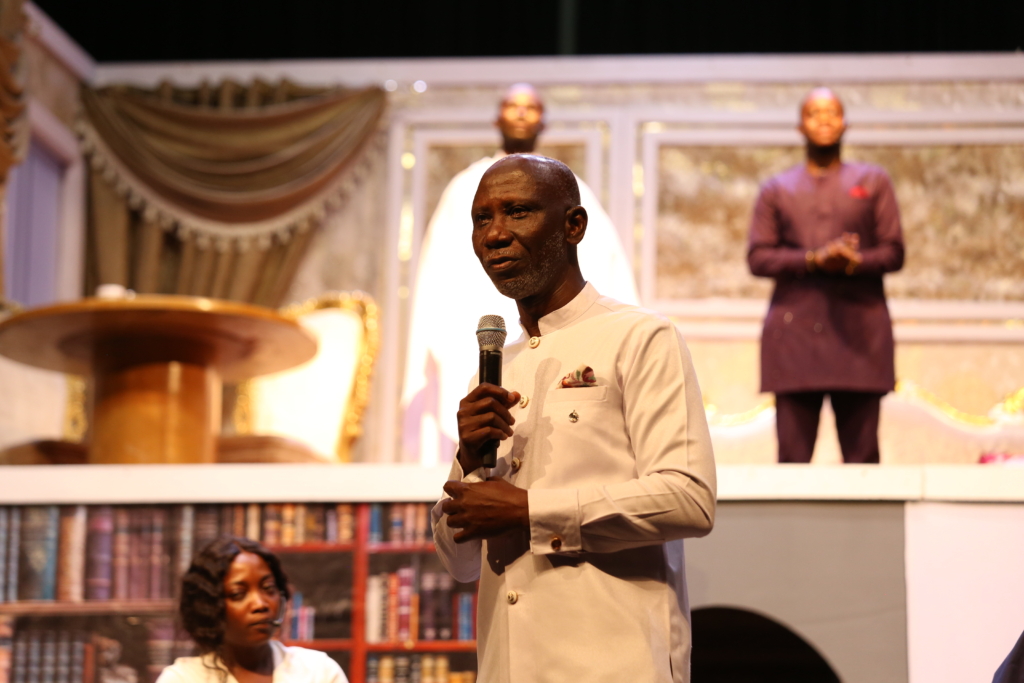
Uncle Ebo has a knack for incorporating current trends in his plays, so why not have Team Eternity’s ‘Defe Defe’ as the curtain raiser after a splendid performance from the R5 band, which performed one of my favorite tracks of all time, “I Who Have Nothing.” I can’t pinpoint the original composer, but I love the renditions by Tom Jones and Cynthia Erivo.
Once everything was set, and the “no photographs, video, and audio recording” caution was spelled out by the actors, it began.
The set was impressive with a simultaneous layout and a first floor, if my architectural knowledge isn’t hazy. The set design was on point, and the setting was a church—LWIC. An acronym should be enough. I wondered how it was able to hold the weight of Apostle Commey. He is truly blessed, considering the weight of his anointing.
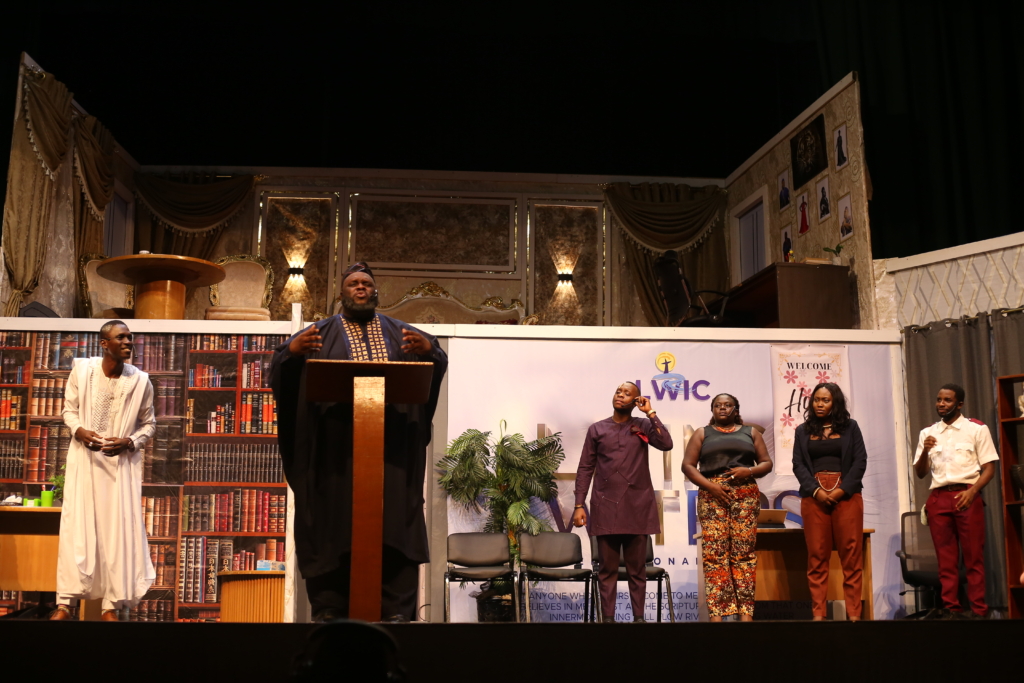
The reception was nothing too fancy, pretty casual, and so was the office of Bishop Onasis, who I couldn’t quite determine whether he was moving too fast into the future or had a back problem. Whatever the case, he was hilarious in the manner he walked, and his office revealed a man who loved to study to show himself approved. Maybe too much studying for his liking since he got power-drunk and sought to overthrow the very man under whom he studied. But something that requires studying is Apostle’s office which had my attention due to the decor and the bougee lighting that shone bright.
Since I can’t stop myself from diving straight into the characters, let’s continue on the same path. “Takeover” has quite a number of characters, but off the top of my head, I’d say the major ones were about four: Apostle Commey, Bishop Onasis, Freeman, and the lovely Mary.
Let’s begin with the last but not least. Mary was played by one of my favorite actors at Roverman, Tina. Tina has the voice of an angel, but unfortunately, Mary had the temperament of a mad devil. Yes, she was the daughter no father wanted when her mental illness set in. But delivering such a delicate character with so much humor was satisfying to watch. Yet, I could feel the pain Apostle Commey went through whenever he saw an embarrassing video of Mary on social media.
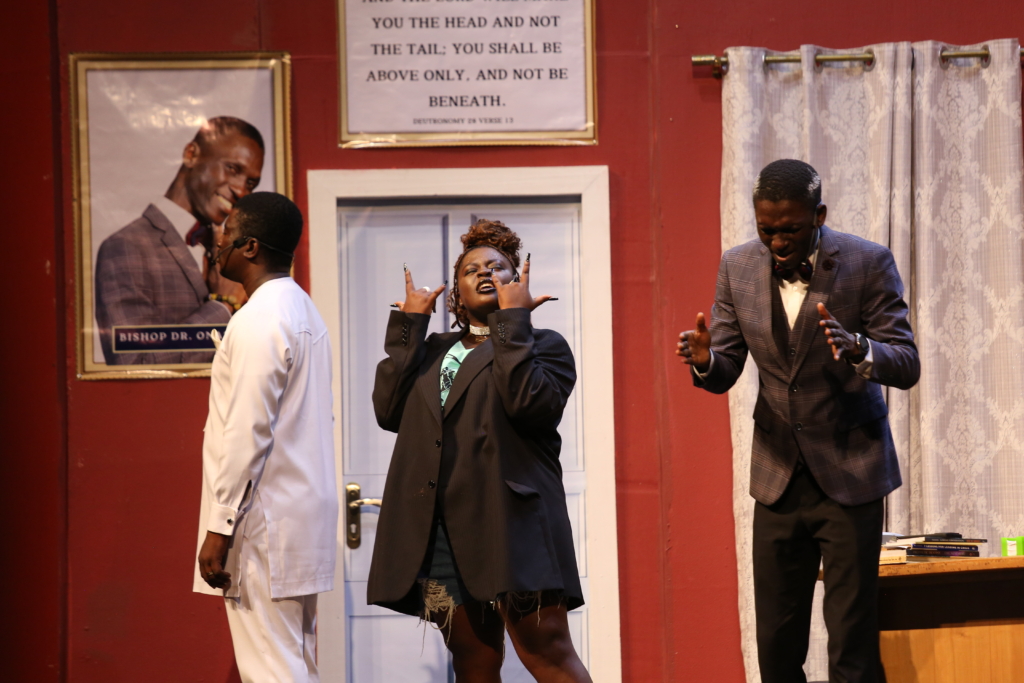
Apostle Commey, whose words carried weight, loved his daughter immensely. With perseverance, he never gave up on her after the demise of his wife, who passed on her mental health issues to their daughter. It broke my heart further when he had to fight not just a part of his daughter he wished didn’t exist, but also deal with two men of God who became men of something else due to their thirst for power and wanted to take over the church he founded.
Bishop Freeman was feisty, and I dare say he had the flaw of King David. He couldn’t discipline what hid in his flap, and any and every lady was in trouble whenever he was near. Hitting on the receptionist was bad enough, but sending an image of what only his wife should see was simply distasteful.
It was fun to see Bishop Freeman go up against Apostle Commey with no restrictions except those put in place by Bishop Onasis. He seemed level-headed, but the secrets in his cupboard were no joke.
The three gentlemen who played these characters were phenomenal. Two familiar faces and one, I thought, was confined to the sound appliances.
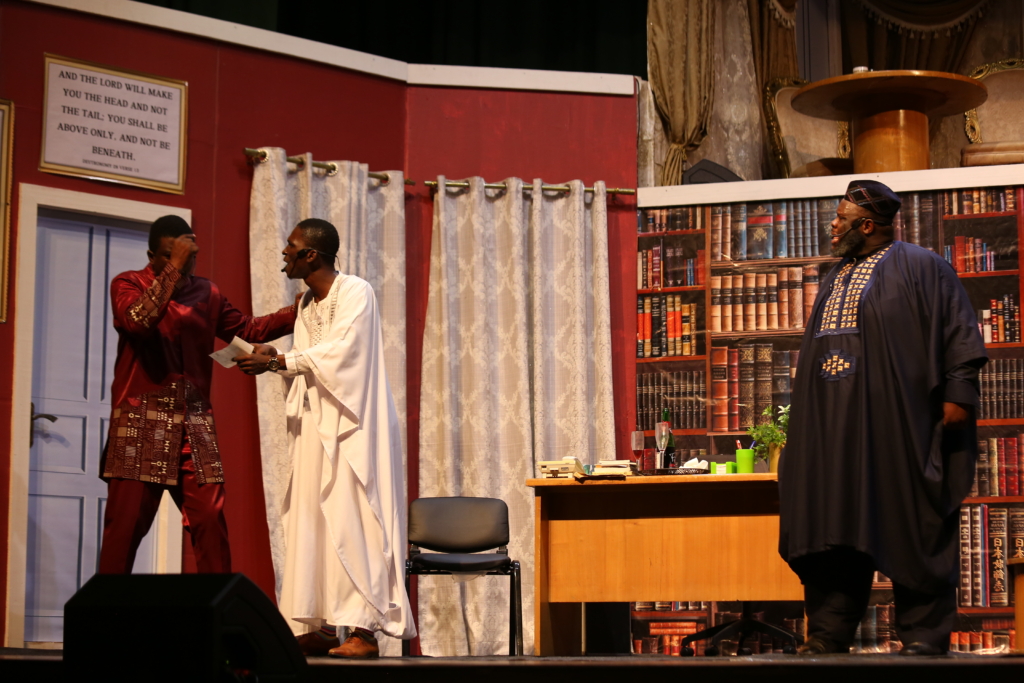
Other events that tickled my fancy were the ghost-singing that turned into appreciation for Ghanaian dance, culture, and reverence for God Almighty. Khebab, another character was just a delight to watch since he had his own way of interpreting the Bible.
“Do all members of Roverman sing, because…,” a colleague said. “Oc force,” Abrewaa Nana Mentumi Tumi, I hope I got the name right, would say. That was my response, and it was evident in all the brief melodies presented on that fateful July 6.
This brief article (wink) will not be complete without touching on the lessons Uncle Ebo White conveyed. Not to bore you, I prefer to list them:
– Not all events happening in your life are spiritually connected.
– We must be loyal to those who made us who we are, especially when they continue to show us love.
– Never give up on those you love.
– Cut the children of pastors some slack. They are also human and have feelings.
– No one is beyond redemption.
– God answers all things.
– I am also a speck. This is more personal than public.
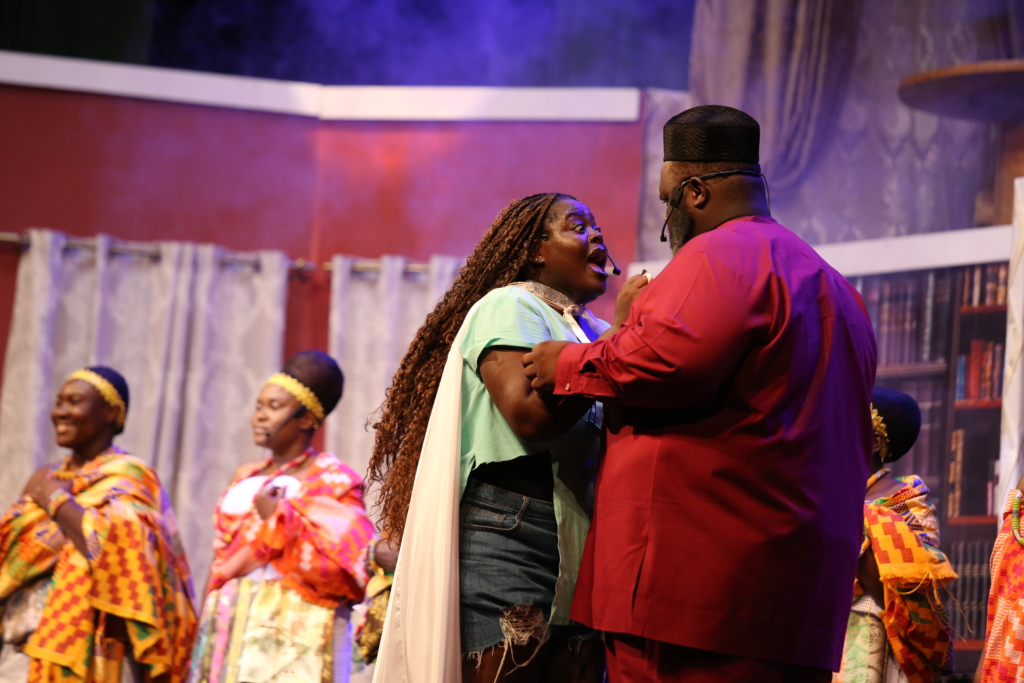
To be honest, I cannot do justice to a 2-hour show with a few words scribbled here and there. I will persevere in my quest to have, if not all, at least a majority of Ghanaians, experience Uncle Ebo White and his very talented Roverman Productions.
Fortunately, his most recent play shows on the 12th, 13th, and 14th of July, 2024, at the National Theatre. Showtimes are: Fridays (one show only) at 7 pm; Saturdays (two shows) at 4 pm and 8 pm; and Sundays (three shows) at 1 pm, 4 pm, and 8 pm.
All you need is a ticket, which goes for GHC200. Dial *365*535# for tickets or use the Rover App. There is good news: you get a discount when you purchase your ticket using the app. Call 0505546010 or WhatsApp 0505546030 for details.
DISCLAIMER: TIGPost.co will not be liable for any inaccuracies contained in this article. The views expressed in the article are solely those of the author’s, and do not reflect those of The Independent Ghana.

